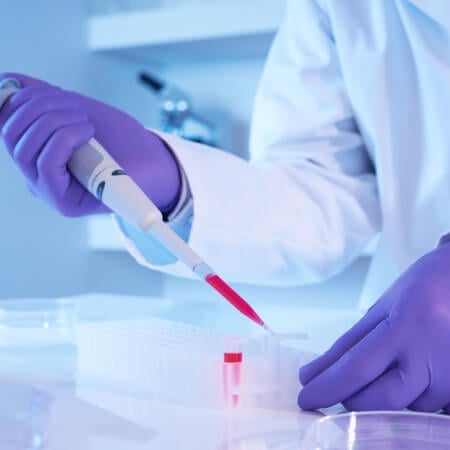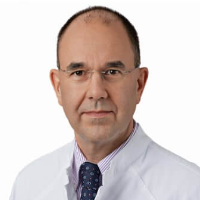Stem Cell Treatment for Diabetes Type 2 in Germany
Treatment prices are regulated by national law of the corresponding countries, but can also include additional hospital coefficients. In order to receive the individual cost calculation, please send us the request and medical records.

Department of Alternative Medicine
The Department of Alternative Medicine specializes in the treatment of various types of cancer and chronic diseases using the methods of integrative medicine. The department belongs to few medical facilities in Germany, which offer individual treatment regimens using biological and integrative techniques. The department has state-of-the-art medical technologies, as well as a multidisciplinary team of competent specialists in various medical fields, including therapists, oncologists, gynecologists, urologists, orthopedists, nephrologists, surgeons, cardiologists and others. In addition, the department has a pleasant and friendly atmosphere.


Department of Regenerative Medicine
The Department of Regenerative Medicine offers all modern methods of stem cell therapy. The medical facility performs stem cell therapy based on the classical protocol, stem cell secretome (SCS) treatment, bone marrow concentrate (BMC) therapy, mesenchymal stem cell therapy, and PRP therapy that involves the injection of platelet-rich plasma. It should be noted that the medical facility has become a pioneer in Europe in the field of therapy with autologous mesenchymal stem cell secretome (SCS), the secretory products of stem cells. The department's medical team diagnoses and treats a wide range of diseases such as multiple sclerosis, rheumatoid arthritis, amyotrophic lateral sclerosis, Parkinson's disease, osteoarthrosis, knee injuries, spinal cord injuries, stroke, xerostomia, Lyme disease, urinary incontinence, and erectile dysfunction. The department also offers cell therapy for rejuvenation and hair loss treatment. The department has well-equipped diagnostic rooms and laboratories where biochemical, genetic, and imaging tests are performed. The specialists take time to study the patient's medical history and perform a comprehensive diagnosis, which helps to develop the most effective treatment regimen. The department's physicians work with innovative treatment methods that have passed all stages of clinical trials, proving their high efficiency and safety. The medical facility is the first cell therapy center in Europe to be certified according to German and European standards.

Stem cells (SCs) are used in various medical fields for the regeneration of damaged organs and tissues. In endocrinology, they are usually used for type 1 diabetes mellitus, but SCs are also effective for type 2 diabetes mellitus, especially for patients who were diagnosed with this disease within the last 10 years. We are going to tell you how stem cells work, where you can undergo stem cell treatment for diabetes type 2 in Germany, and what results you should expect.
Content
- The principle of the treatment method
- Evidence of stem cell effectiveness for diabetes mellitus
- Mechanism of action
- Administration of SCs into the pancreas
- How is stem cell treatment carried out in Germany?
- Where can I undergo treatment?
The principle of the treatment method
SCs are poorly differentiated cells. They differentiate (transform) into other, more specialized types of cells, depending on the environment in which they are placed.
These properties of SCs are used to regenerate organs and tissues. In the 21st century, the popularity of SCs is growing rapidly. More and more research is being carried out worldwide to assess the effectiveness and safety of cell therapy. It is with this area of medicine that future breakthroughs in the cure of many diseases that are considered incurable today are associated.
Although the diabetes mellitus treatment using SCs varies in different clinics, the principle is the same: a person's own (autologous) cells are taken and then injected into the body using various methods, mainly intravenously. As a result, SCs restore damaged organs and tissues, normalize immune reactions, and improve metabolic processes. Even a single procedure allows for an effect that persists for many months.
Evidence of stem cell effectiveness for diabetes mellitus
Although stem cell therapy is still not a standard treatment method but an experimental one, doctors have already received evidence of its effectiveness.
In research conducted in 2021, 30 patients underwent treatment for type 2 diabetes mellitus using bone marrow mesenchymal SCs. As a result, their HbA1c and fasting glucose levels decreased. HbA1c is a measure that reflects the average blood glucose levels over the past 3 months.
The authors concluded that the greatest efficacy of SCs for type 2 diabetes mellitus was observed in patients without excess weight and with a disease duration of less than 10 years. The effect of stem cell administration persisted for up to 6 months. The authors concluded that type 2 diabetes mellitus should be treated with stem cells as early as possible, preferably immediately after diagnosis.
Mechanism of action
Other studies have shown similar results. The effect of stem cell treatment is favorable for the early stages of the disease but diminishes over time. Obviously, this is due to the primary mechanism of the impact of stem cells on carbohydrate metabolism.
Type 2 diabetes mellitus develops when cells stop "responding" to insulin. At the same time, a person does not have any hormone deficiency, unlike type 1 diabetes mellitus.
The goal of treatment for type 2 diabetes mellitus is to lower blood glucose levels. There are several ways to achieve this result, but in general, there are two directions: patients can reduce glucose consumption (diet or drugs to suppress the absorption of carbohydrates, such as acarbose) or improve its absorption by peripheral tissues. In turn, increased glucose absorption is possible if:
- Tissue sensitivity to insulin is improved
- Insulin production is increased (higher levels of the hormone in the blood may facilitate glucose penetration into cells even with low tissue sensitivity to insulin)
Stem cell treatment is aimed at the second mechanism. It is similar to treating diabetes mellitus with sulfonylurea drugs, which stimulate pancreatic cells to produce more insulin. However, the difference lies in the fact that sulfonylureas deplete these cells by forcing them to work at full capacity for long periods of time, while SCs restore the beta cells, resulting in a natural improvement of their function.
It is for this reason that SCs work well for patients with type 2 diabetes who were diagnosed less than 10 years ago. During this time, the insulin-producing cells are not yet depleted and are subject to restoration. SCs regenerate them, and insulin production increases. As a result, blood glucose levels decrease and metabolic processes normalize.
In addition, experiments on mice have shown that treatment with stem cells increases tissue sensitivity to insulin. Cells can thus work through several mechanisms.
Administration of SCs into the pancreas
SCs were first used for type 1 diabetes mellitus in 2007, and already in 2009, this approach (novel) was used for type 2 diabetes mellitus. Doctors administered SCs harvested from the bone marrow into the pancreas. Treatment was provided for the most seriously ill patients, namely those with ineffective responses to three standard drugs, a long history of the disease, and those with a need for insulin.
Despite these circumstances, the scientists obtained impressive results. During a 6-month observation period, patients experienced weight loss, and their HbA1c levels decreased. All 10 patients who took part in the study had a reduced need for insulin, including three patients who became insulin-independent. It is possible that this result could have been achieved in all patients because the study showed that the higher the dose of SCs administered, the better the therapeutic outcome. Those patients who received the highest dose of SCs became insulin-independent.
How is stem cell treatment carried out in Germany?
The treatment is not standardized. It varies at different clinics. The types of cells used, the method of collecting them, the method of administration, the dosage of cells, and the number and frequency of procedures differ.
Mesenchymal SCs are mainly used, which are harvested from the patient's bone marrow or peripheral blood. They can be administered:
- Intravenously
- Intra-arterially, that is, into the arteries supplying the pancreas, using a catheter
- Directly into the pancreatic tissue during a minimally invasive procedure
Intravenous administration is mainly used because it is safer and provides patients with good therapeutic results due to homing, which is a property of stem cells (SCs) that enables them to find the lesion, accumulate there, and perform functions to restore damaged tissues.
Where can I undergo treatment?
If you want to undergo diagnosis and treatment for type 2 diabetes mellitus with stem cells abroad, you should use the services of the Booking Health company. On the company's website, you can choose a clinic, find out prices, and make an appointment for your treatment for your preferred dates.
Stem cell therapy can help:
- Improve metabolism for a long time – the effect lasts for 6-12 months
- Achieve good outcomes even in the most severe cases (with very high blood glucose levels, ineffectiveness of standard therapy, and insulin dependence)
- Reduce the need for insulin and antihyperglycemic drugs
- Prevent the destruction of beta cells that produce insulin (lowering the risk of transitioning from non-insulin-dependent diabetes mellitus to insulin-dependent diabetes)
- Lower the risk of diabetes mellitus complications such as diabetic foot, kidney damage, vision loss, stroke, etc.
Doctors at the best German hospitals successfully use SCs both as monotherapy and in combination with standard type 2 diabetes treatment. Doctors thoroughly monitor blood glucose levels to ensure full control of the disease while avoiding hypoglycemia (low blood glucose levels).
You are welcome to have a consultation with the Booking Health specialists if you want to go to Germany for treatment. They will help you choose the most suitable clinic, make an appointment for your preferred dates, and take care of all the arrangements for your trip to one of the best hospitals in Germany. When you make an appointment for your treatment through our service, the average cost of treatment will be lower due to the absence of additional fees for foreign patients.
Authors:
The article was edited by medical experts, board-certified doctors Dr. Nadezhda Ivanisova and Dr. Vadim Zhiliuk. For the treatment of the conditions referred to in the article, you must consult a doctor; the information in the article is not intended for self-medication!
Sources:

